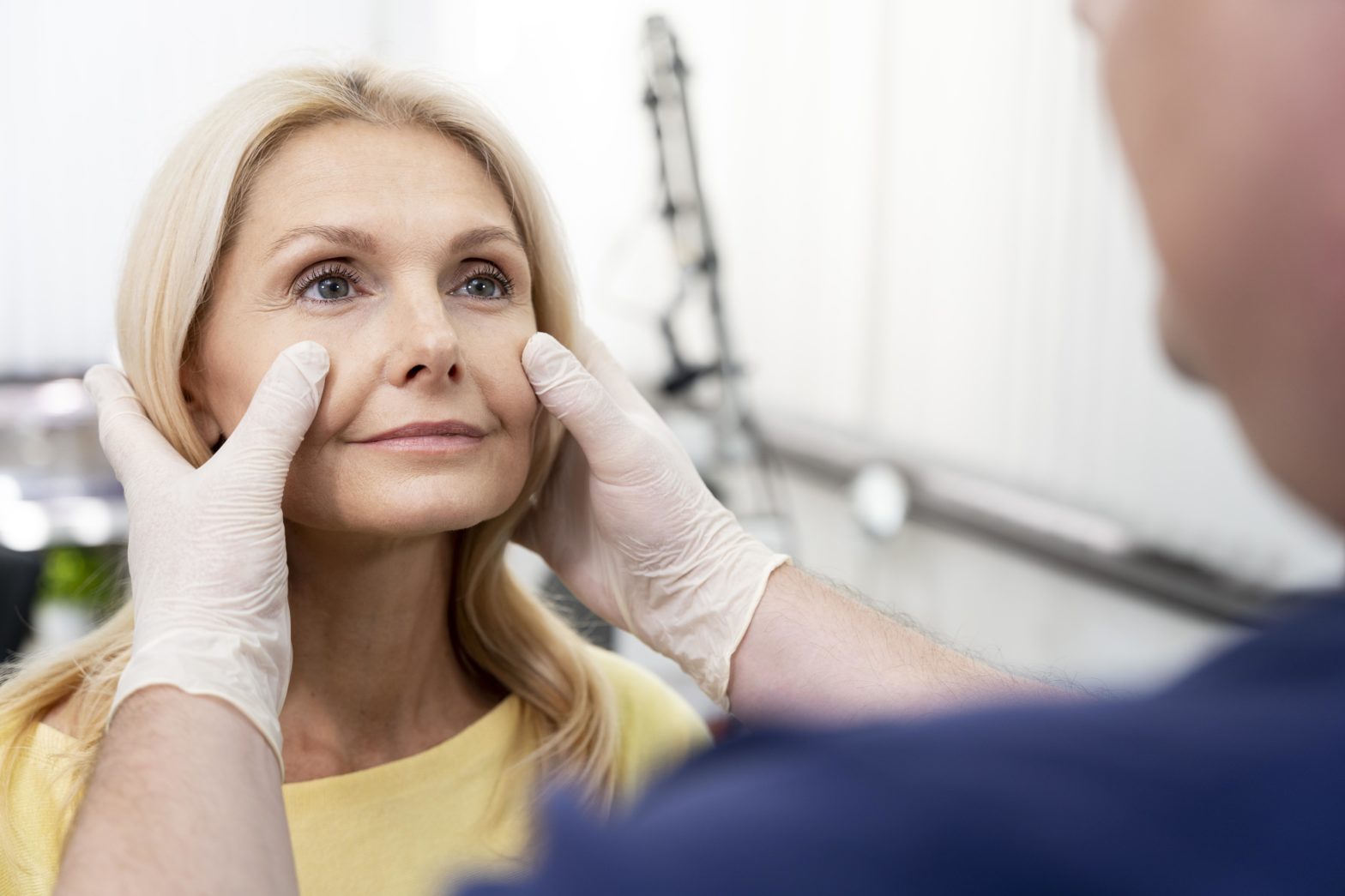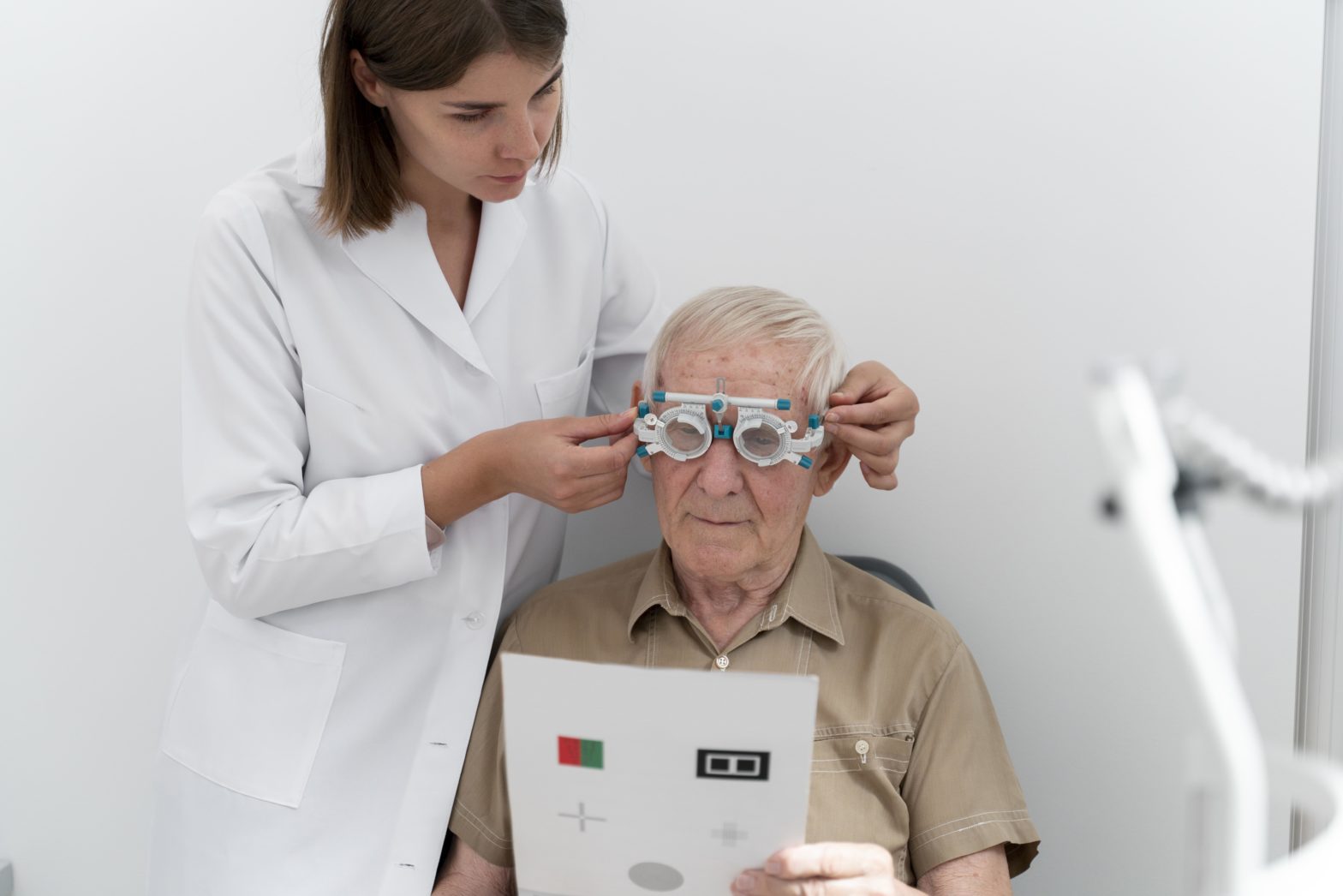Our eyes are our windows to the world, and taking care of them should be a priority. With the increasing use of digital devices, longer working hours, and environmental factors such as pollution and UV exposure, eye health is often neglected. The good news is that maintaining optimal eye health doesn’t have to be complicated. Simple, everyday habits can make a significant difference in preserving your vision and preventing future eye problems. In this blog, we’ll explore some of the best daily habits to help you keep your eyes healthy, sharp, and protected for the long haul.
1. The 20-20-20 Rule: Combat Digital Eye Strain
In today’s digital age, screen time has become a part of our daily routine, whether at work, school, or leisure. Prolonged exposure to screens can cause digital eye strain, leading to discomfort, headaches, and even blurred vision. To reduce this strain, the 20-20-20 rule comes in handy:
What is the 20-20-20 rule? Every 20 minutes, take a 20-second break and look at something 20 feet away. This simple practice helps your eyes relax, preventing fatigue and strain.
How to implement this habit? Set a timer or reminder on your devices to ensure you take these regular breaks. Your eyes will thank you for it!
2. Maintain a Balanced Diet Rich in Eye-Friendly Nutrients
Your diet plays a critical role in keeping your eyes healthy. Certain nutrients are essential for good vision and reducing the risk of eye-related diseases such as મોતિયા and macular degeneration. Here’s what to include:
- વિટામિન એ: Known for its eye health benefits, it helps maintain the surface of the eyes and contributes to good vision. Include foods like carrots, sweet potatoes, and leafy greens in your meals.
- ઓમેગા -3 ફેટી એસિડ્સ: These healthy fats are known to reduce the risk of dry eye syndrome. You can find them in fish like salmon, flaxseeds, and walnuts.
- લ્યુટીન અને ઝેક્સાન્થિન: These antioxidants are found in the retina and help protect the eyes from harmful light. Green vegetables like spinach and kale are rich in these nutrients.
- Vitamin C and E: They protect the eyes from oxidative stress. Include citrus fruits, nuts, and seeds in your diet for a regular supply of these vitamins.
By maintaining a diet rich in these nutrients, you’re nourishing your eyes from within and reducing the risk of age-related eye conditions.
3. Stay Hydrated to Prevent Dry Eyes
Dehydration can lead to dry eyes, causing irritation, blurred vision, and discomfort. Ensuring you drink enough water each day helps your body produce the necessary amount of tears to keep your eyes lubricated and healthy. Make it a habit to drink at least 8 glasses of water daily. This is particularly important if you live in a dry climate or spend a lot of time in air-conditioned environments.
4. Wear Sunglasses to Protect Against UV Rays
Just like your skin, your eyes need protection from the sun’s harmful ultraviolet (UV) rays. Overexposure to UV light can increase the risk of cataracts, macular degeneration, and other eye conditions.
Why is it important? UV rays can cause long-term damage to the eye’s surface and internal structures. Wearing sunglasses that block 100% of UV-A and UV-B rays is a crucial step in protecting your eyes.
When should you wear sunglasses? Not just during summer! UV rays are present year-round, so make sure to wear sunglasses whenever you step outside, especially during peak sunlight hours.
5. Don’t Forget Regular Eye Exams
Routine eye check-ups are a critical part of maintaining optimal eye health. Even if you don’t experience any vision problems, a comprehensive eye exam can detect underlying conditions like glaucoma, diabetic retinopathy, or macular degeneration, which may not show symptoms until later stages.
When to schedule your eye exams? Adults should have their eyes examined every two years, but if you wear glasses or contact lenses, you might need annual check-ups. Individuals over 60 should also increase the frequency of their eye exams, as the risk of eye diseases increases with age.
Regular eye exams not only ensure that your prescription is up to date but also help in the early detection of potential vision problems.
6. Take Care of Your Contact Lenses
If you wear contact lenses, proper care and hygiene are essential to prevent infections and maintain healthy eyes. Many common eye infections, such as conjunctivitis, are caused by improper handling or cleaning of contact lenses.
What are the best practices for contact lens care?
- Always wash your hands before handling your lenses.
- Use only fresh solutions to clean and store your lenses—never water or saliva.
- Replace your lenses as recommended by your eye care provider, and never wear them for longer than prescribed.
- Avoid sleeping in your lenses unless they’re designed for overnight wear.
Following these habits will help prevent irritation, infections, and serious eye health issues related to contact lenses.
7. Practice Proper Lighting
The environment you work or read in plays a significant role in eye strain. Poor lighting conditions can lead to eye discomfort and difficulty focusing.
How to improve your lighting habits?
- When reading or working, ensure that the lighting is bright enough to reduce strain. Avoid dim settings as they force your eyes to work harder.
- Position your computer or work screen to reduce glare. Soft, indirect light is usually better than harsh, direct light.
- For reading or doing close-up work, use task lighting to focus on the area you’re working on.
- Creating a well-lit environment will not only make tasks easier on your eyes but also help prevent long-term damage from strain.
8. Blink More Often
Blinking is an often-overlooked yet essential habit for maintaining eye health, especially when using digital devices. Blinking helps moisten the eyes, prevent dryness, and remove small particles or dust that may irritate them.
Why is blinking important? When we focus on screens or read for extended periods, we tend to blink less frequently, leading to સૂકી આંખો and discomfort. Make a conscious effort to blink more often, particularly during prolonged screen time.
9. Get Enough Sleep for Eye Recovery
Adequate sleep is not only essential for overall health but also for eye health. During sleep, your eyes are replenished and rested, allowing them to recover from the strain of the day.
How does sleep affect your eyes?
Lack of sleep can lead to dry eyes, eye twitching, blurred vision, and even more serious conditions like eye infections. Aim for 7-9 hours of sleep each night to keep your eyes rested and rejuvenated.
Tip: Establish a relaxing bedtime routine to ensure quality sleep, such as dimming the lights and reducing screen time before bed.
10. Be Aware of Your Eye Makeup Hygiene
For those who use eye makeup, hygiene is key. Eye makeup can harbor bacteria, leading to infections like styes or conjunctivitis if not applied or removed properly.
What are some good practices for eye makeup?
- Always remove eye makeup before going to bed.
- Avoid using expired products.
- Do not share your makeup with others, as this can transfer bacteria.
- Replace mascara every 3 months to avoid contamination.
Maintaining clean makeup habits will help you avoid irritation and infections, keeping your eyes safe and healthy.
11. Avoid Smoking
Smoking has a detrimental effect on your eyes, increasing the risk of cataracts, macular degeneration, and optic nerve damage. The chemicals in cigarette smoke can also irritate the eyes and lead to dry eye syndrome.
How does smoking affect eye health?
Smoking constricts blood vessels, including those in the eyes, reducing oxygen and essential nutrients. Even exposure to secondhand smoke can irritate and damage your eyes over time.
Tip: If you smoke, consider quitting for the sake of your overall health, including your vision.
12. Be Mindful of Blue Light Exposure
Blue light from screens can disrupt sleep patterns and may contribute to digital eye strain. Though the long-term effects of blue light are still being studied, it’s wise to take precautions.
How to manage blue light exposure?
- Use blue light filters on your devices.
- Try glasses designed to block or reduce blue light if you spend long hours in front of screens.
- Reduce screen time, especially in the evenings, as blue light can interfere with your natural sleep cycle.
Maintaining optimal આંખ આરોગ્ય is within reach when you incorporate these simple yet effective habits into your daily routine. From the foods you eat to how you handle your screens and contacts, every step matters. By staying vigilant and proactive about eye care, you can protect your vision and keep your eyes healthy for years to come. Remember, your eyes are irreplaceable—take care of them every day!









